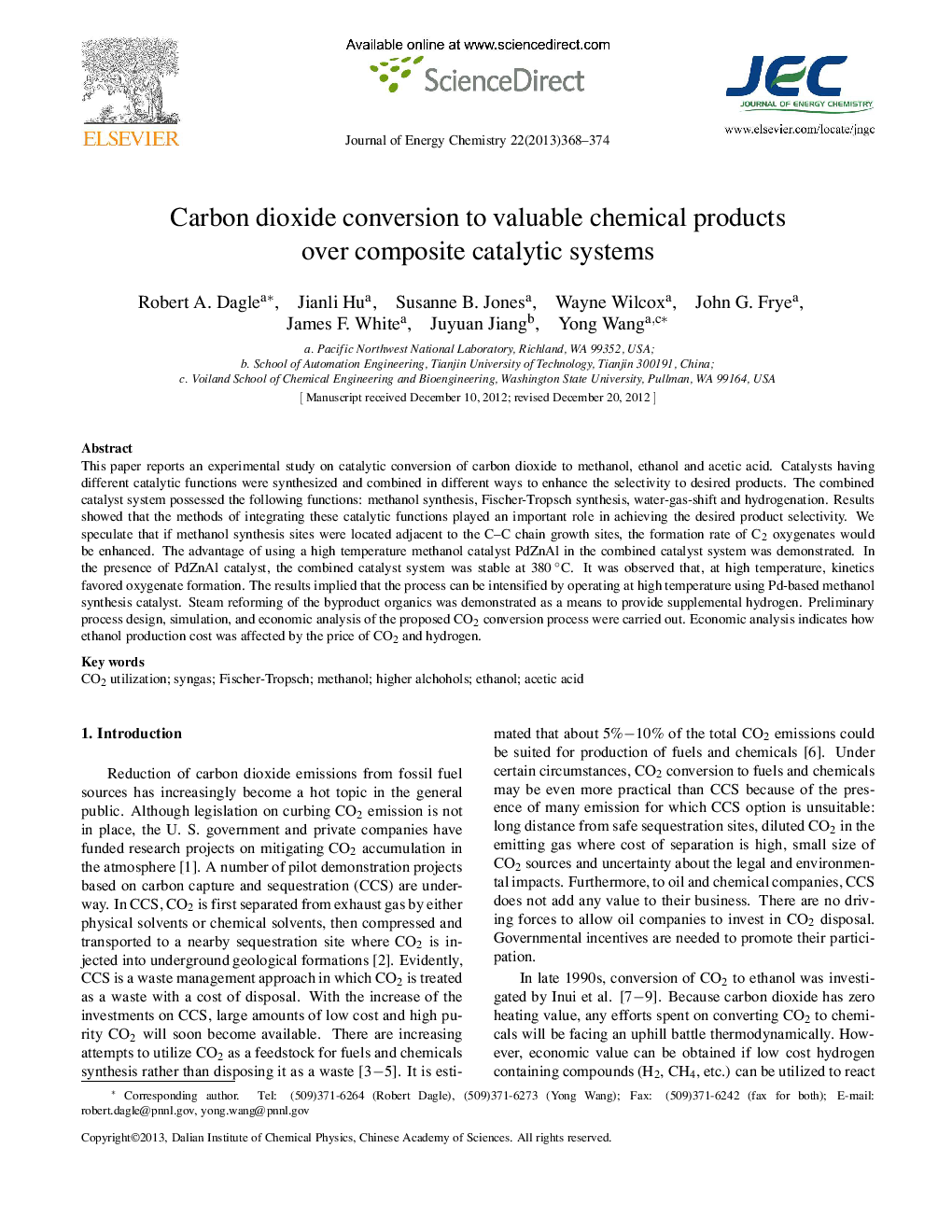| Article ID | Journal | Published Year | Pages | File Type |
|---|---|---|---|---|
| 64051 | Journal of Energy Chemistry | 2013 | 7 Pages |
This paper reports an experimental study on catalytic conversion of carbon dioxide to methanol, ethanol and acetic acid. Catalysts having different catalytic functions were synthesized and combined in different ways to enhance the selectivity to desired products. The combined catalyst system possessed the following functions: methanol synthesis, Fischer-Tropsch synthesis, water-gas-shift and hydrogenation. Results showed that the methods of integrating these catalytic functions played an important role in achieving the desired product selectivity. We speculate that if methanol synthesis sites were located adjacent to the C–C chain growth sites, the formation rate of C2 oxygenates would be enhanced. The advantage of using a high temperature methanol catalyst PdZnAl in the combined catalyst system was demonstrated. In the presence of PdZnAl catalyst, the combined catalyst system was stable at 380 °C. It was observed that, at high temperature, kinetics favored oxygenate formation. The results implied that the process can be intensified by operating at high temperature using Pd-based methanol synthesis catalyst. Steam reforming of the byproduct organics was demonstrated as a means to provide supplemental hydrogen. Preliminary process design, simulation, and economic analysis of the proposed CO2 conversion process were carried out. Economic analysis indicates how ethanol production cost was affected by the price of CO2 and hydrogen.
